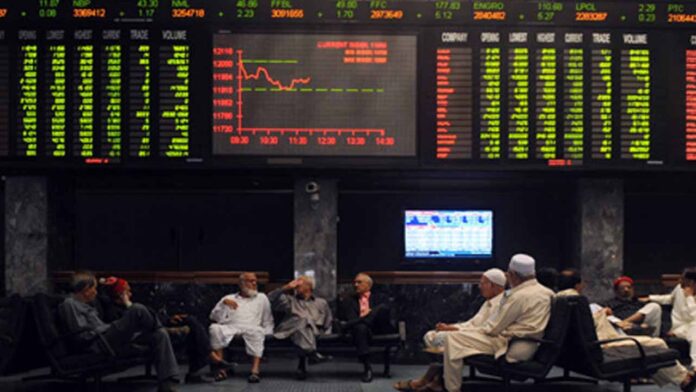The Initial Public Offering (IPO) of the Globe Residency REIT, Pakistan’s first development REIT, has been oversubscribed. According to details, GRR had offered 10% of its units in an IPO on the PSX earlier in the month.
In response, GRR received applications for 38,794,500 units. Their offering had been for 14,000,000 units, which means the IPO was oversubscribed by 24,794,500 units, giving an oversubscription value of Rs 247,945,000. One unit was valued at Rs 10. A lottery is now likely to be conducted to award the shares. The IPO came as part of a legal necessity that requires real estate projects registered as REITS offer shares to the general public.
What is a REIT?
The GRR is a real estate project launched in November 2021 which is building nine apartment complexes within the bounds of the Naya Nazimabad housing project — an ambitious undertaking by the Javedan corporation to build a “city within a city” in Karachi.
To anyone not keyed in to the specifics of and terminology being used, the above information is French. Essentially, a very brief summary of the entire matter is that Arif Habib Limited have launched this nine tower project by establishing a ‘Real Estate Investment Trust (REIT)’, which is a special category of real estate project that brings public money into real estate projects through the stock market. The reason for establishing this REIT could be the tax-breaks that are offered by the government, but largely it seems that with dwindling trust in real estate the Arif Habib group may be going this route to boost investor confidence.
The ‘REIT’ is a legal entity that either acquires land to develop real estate or acquires already developed real estate . The developed real estate is then either sold or rented out, and the money from this is then distributed among the unit holders or ‘shareholders’ in the REIT. In Pakistan, going for a REIT offers many benefits in the form of tax breaks. For REIT projects, there is no tax on capital gains on transfer of immovable property.
Since REITs are collective investment schemes that take money from investors and deploy it in real estate projects. Because REITs are listed on the PSX, they offer a degree of protection and transparency that regular real estate projects just do not have. And with trust in real estate at an all-time low, a REIT project brings with it a certain level of legitimacy.
What does the oversubscription indicate?
Essentially, there are two take-aways from this. The first is the very obvious fact that there are very few investment opportunities in Pakistan. On top of that, most people feel that real estate is a good avenue to invest in. However, recent years have seen a galore of real estate scams that have resulted in an aversion to the classic plot-flipping method of investment that a lot of people preferred.
This was also the thesis of Profit’s pre-offering feature story on the GRR; that major shift is happening in Pakistan’s real estate market where property is no longer considered the hedge against inflation it once was. With investors also wary of the many scams and the lawless landscape of real estate in the country, developers are now looking for better ways to make real estate more liquid and transparent.
But is it any different from regular real estate projects?
The answer is yes and no. On the one hand, The GRR offered an opportunity to invest in real estate in a different and apparently secure way. Since public money is involved in REITs, the SECP also keeps a direct eye on the matter. This way, regular Pakistanis for the first time have had the opportunity to not just invest in real estate but actually become real estate developers.
On the other hand, there is another issue with this project in particular. That is that the IPO is not being used to fund the project. In fact, the GRR’s management is happy to admit that the project itself is being run in the way all real estate development is funded in Pakistan — through customer advances.
It needs to be clearly understood that this is an “Offer for Sale” by the existing unitholder. This offering is not related to project financing”, says Muhammad Ejaz, CEO of Arif Habib Dolmen REIT — the management company that is overseeing the GRR. He says that they did not go the REIT route to collect money, and that the financing for this project was still mostly coming the typical way — buyers of apartment files making advance booking payments before the development stage, and installment payments during the development stage.
This is the major risk of the project. If the customer advances are delayed and usually they are due to circumstances beyond the customer’s control, the project will be delayed. The REIT doesn’t generate any cash flows. All the construction and expenses of the REIT are to be financed from the cash advances received from the customers. Thus the GRR unit investors are taking a punt on not only all the units selling but the buyers of these units making payments as per forecast.




